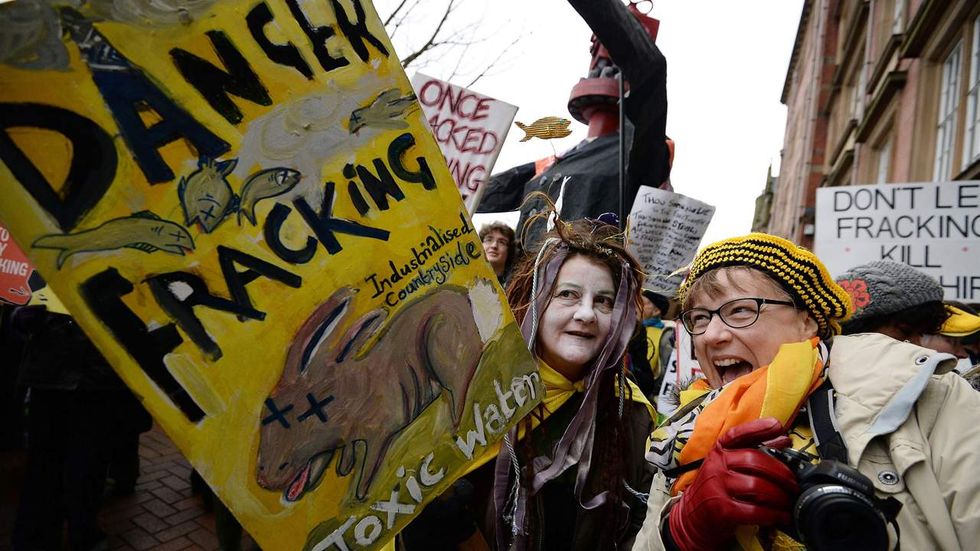
A new study by researchers at Duke University has found fracking does not pose a significant risk to groundwater. (Nigel Roddis/Getty Images)

Hydraulic fracturing, commonly referred to as “fracking,” has been the target of numerous environmental groups and climate change alarmists since becoming a significant part of the U.S. economy. Fracking has allowed companies to extract oil and natural gas from the ground in areas that were once thought to be impossible to get to, which means in the minds of environmental extremists, it’s helping to contribute to man-caused global warming.
According to the U.S. Chamber of Commerce, if fracking were banned, as many environmentalists have suggested, there would be 14.8 million fewer jobs by 2022 and the price of gasoline and electricity would double compared to what they would otherwise be.
Because fracking has provided incredible economic benefits, especially in many states in the Midwest and West, environmentalists have attempted to argue it should be banned based on other potential risks. One of the most cited “problems” fracking allegedly causes is the contamination of drinking water. Environmentalists have long claimed the fracking process causes dangerous chemicals and other damage to natural water sources, and in some areas, as a result, environmentalists have been successful in convincing lawmakers to pass bans.
Well-crafted studies, however, have shown these fears are completely overblown and unnecessary, and a new study by researchers at Duke University confirms these findings. According to the researchers, hydraulic fracturing processes do not pose a systemic impact on groundwater.
Incredibly, the study was funded in part by the far-left Natural Resources Defense Council, an organization that has historically been an adamant opponent of fracking.
On its website, the NRDC wrote, “While the exact mixtures of chemicals used for fracking are often withheld as trade secrets, we do know that many of them have been associated with a whole host of health issues, including cancer. Moreover, fracking can cause some severe environmental impacts and public health threats.”
“Even on good days, a fracking operation does not make for a great neighbor,” NRDC also said. “Drilling and fracturing cause loud noises and require bright lights. … On bad days, things get even worse. Chemical-laced wastewater can spill and pollute drinking water as well as cause earthquakes when massive amounts of it are disposed. Fracking is also not immune to mishaps like dangerous and climate change–aggravating methane leaks and even explosions.”
Tim Benson, a policy analyst at The Heartland Institute, where I also work as an editor, wrote earlier in May, “The existing peer-reviewed evidence shows hydraulic fracturing processes do not pose a systemic impact on groundwater. Since 2010, at least 18 of these studies have been produced, including ones by the Bureau of Economic Geology at the Jackson School of Geosciences at the University of Texas-Austin, the Department of Geology at the McMicken College of Arts and Sciences at the University of Cincinnati, the California Council on Science and Technology and the Lawrence Berkeley National Laboratory, the Department of Energy’s National Energy Technology Laboratory, and Germany’s Federal Institute for Geosciences and Natural Resources.”
Perhaps the NRDC and other environmental groups will reexamine their positions on fracking in light of the mounting evidence showing fracking is, generally speaking, a safe and effective way of extracting oil and gas.
Justin Haskins